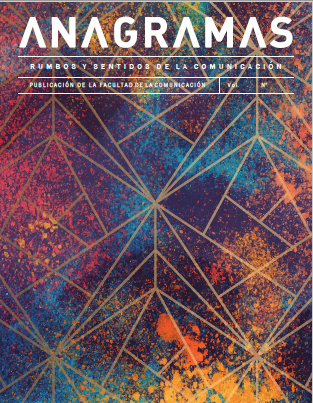Linkage and Consumption of Fandom with the Marvel Cinematic Universe. (Phases 3 and 4)
Main Article Content
Abstract
The pop culture of entertainment appeals to vast masses of individuals who can share in the same appreciation and enjoyment. Among them are fervent fans, united by a shared passion for a singular narrative. When they coalesce into a fandom, they can achieve remarkable objectives. The Marvel Cinematic Universe exemplifies this phenomenon. Through superheroes and their stories, conveyed across diverse media, it has successfully cultivated a substantial base of enthusiasts over the years, globally recognized. Consequently, the consumption of the entire array of products and experiences offered by this universe is prevalent within this context.
The overarching goal of this research is to comprehensively analyze the influence of the Marvel Cinematic Universe on its fans, aiming to comprehend the impact on their consumption preferences. Moreover, the specific objectives encompass determining the impact of pop culture within the entertainment domain in contemporary society, assessing the evolution of the Marvel Cinematic Universe and its interrelation with fandom. Lastly, the study aims to dissect the influence on consumption preferences among fans of the Marvel Cinematic Universe. The contemporary accomplishments within the Marvel Cinematic Universe owe their existence to years of meticulous construction; every facet has been meticulously orchestrated and executed to forge the universe known today—one that has permeated the decisions and experiential aspects of numerous individuals within the franchise.
Article Details
References
Asa, A. (2010). The objects of affection, semiotics and consumer culture. Palgrave Macmillan.
Bannock, G. (2011). The Penguin Dictionary of Economics. Penguin Books.
Barnes, B. (2009). Disney swoops into action, buying Marvel for $4 billion. New York Times. https://www.nytimes.com/2009/09/01/business/media/01disney.html
Bauman, Z. (2007). 160 pp. (Vida de consumo FCE, 2007, 205 pp.). EMPIRIA. Revista de MetodologÃa de Ciencias Sociales, (14), 195-204.
Baudrillard, J. (2007). La sociedad de consumo: sus mitos, sus estructuras. Siglo XXI de España Editores.
Busquet, J. (2012). El fenómeno de los fans e Ãdolos mediáticos: evolución conceptual y génesis histórica. Revista de Estudios de Juventud, (96),13-29. https://dialnet.unirioja.es/servlet/articulo?codigo=5052690
Cuartas, V. y Escobar, H. (2006). Diccionario económico financiero. Sello Editorial de la Universidad de MedellÃn.
EOB. (2009). Disney Company compró Marvel comics https://videojuegos.enriqueortegaburgos.com/disney-adquiere-marvel-comics-2009/
Delaney, T. (2007). Pop culture: an overview. Philosophy Now. https://philosophynow.org/issues/64/Pop_Culture_An_Overview
Derbaix, M. y Korchia, M. (2019). Individual celebration of pop music icons: A study of music fans relationships with their object of fandom and associated practices. Journal of Consumer Behaviour, 18(2), 109-119.
Featherstone, M. (2007). Cultura de consumo y posmodernismo. Sabio.
Foley, R. (2019). Avengers Endgame: en qué orden deberÃas ver las pelÃculas del Universo Marvel para entender el final de la saga. BBC News Mundo. https://www.bbc.com/mundo/noticias-48017753
Ford, H. (2021, 29 enero). Marvel Testimonials: Joe Quesada, Executive Vice President & Creative Director, Marvel Entertainment. [Video]. YouTube. https://youtu.be/mSXpzbPzcDk
GarcÃa, N. (2014). Imagined globalization. Duke University Press.
Glasser, B. (1992). Basics of grounded theory analysis: Emergence vs. forcing. Sociology Press.
Gibson-Graham, JK (2011). Una polÃtica poscapitalista. Siglo del Hombre editores.
Goldberg, M. (2015). ANT-MAN Set Visit: Kevin Feige Talks Expanding Mythology and More. Collider. https://doiorg.consultaremota.upb.edu.co/10.5294/pacla.2017.20.4.8
González, C. (2018). Sobre la cultura popular, un acercamiento. Estudios sobre las culturas contemporáneas. Época III, XXIV, 65-82.
Griffiths, H. y Keirns, N. (2015). Introduction to Sociology. OpenStax.
Guins, R. y Cruz, O. (2005). Popular culture: A reader. Sage publications
Hills, M. (2017). From Fan Culture/Community to the Fan World: Possible Pathways and Ways of Having Done Fandom. Palabra Clave, 20(4), 856-883.
Howson, A. (2019). Popular Culture. Salem Press Encyclopedia.
Jenkins, H. (2006). Fans, bloggers and gamers. Exploring participatory culture. New York University press
Jenkins, H. (2007). The WOW climax: tracing the emotional impact of popular culture. New York University Test. Kevin Feige. (Dakota del Norte). AZQuotes.com. Recuperado el 7 de junio de 2023 del sitio web AZQuotes.com: https://www.azquotes.com/quote/1107121
Kidd, D. (2017). Popular culture. En K. Odell (ed.), The Cambridge Handbook of Sociology. Specialty and Interdisciplinary Studies (pp. 284-292). Cambridge University Press.
Kresnicka, S. (2016). Why Understanding Fans is the New Superpower. Variety https://variety.com/2016/tv/columns/understanding-fans-superpower-troika-1201743513/
Laporte, N. (2017). Marvel Rules The Universe. Fast Company. https://www.fastcompany.com/40401280/marvel-rules-the-universe
Lara, G. y Pulido, L. (2007). Sociedad de consumo y cultura consumista. Argumentos, 20(55). http:// www.scielo.org.mx/scielo.php?script=sci_arttext&pid=S0187-57952007000300008
Lipovetsky, G. (2007). La felicidad paradójica. Anagrama.
Lucerga, M. J. (2013). COMMONS nº 3.
Neira, L. (2019). Universo Cinematográfico de Marvel ha recaudado cerca de US$17.000 millones.
La República. https://www.larepublica.co/ocio/universo-cinematografico-de-marvel-harecaudado-cerca-de-us-17-000-millones-2854924
OMPI - Organización Mundial de la Propiedad Intelectual (1994). https://www.wipo.int/portal/es/ index.html#services
Páramo, D. (2004). El Fenómeno de Consumo y el Consumo en Marketing. Convergencia. Revista de Ciencias Sociales, 11(34), 221-250. https://www.redalyc.org/articulo.oa?id=10503409
Penny, L. (2019). We Can Be Heroes: How the Nerds Are Reinventing Pop Culture. Wired. https:// www.wired.com/story/culture-fan-tastic-planet-fanfic/
Phillips, J. y Bowers, K. (2020). Using pop culture authentically. Transformative Works & Cultures, 34(1).
Porter, J. E. (2009). Implicit religion in popular culture: the religious dimensions of fan communities. Implicit Religion, 12(3), 271–280.
Posada, R. (2013). La vida de consumo o la vida social que se consume: apreciaciones sobre la tipologÃa ideal del consumismo de Zygmunt Bauman. http://www.scielo.org.mx/scielo.php?script=sci_arttext&pid=S0185-16162013000200006&lng=es&tlng=es
Roach, B., Goodwin, N. y Nelson, J. (2019). Consumption and the consumer society. Global Development and Environment Institute Tufts University. https://www.bu.edu/eci/files/2019/10/Consumption_and_Consumer_Society.pdf
Robbins, J. (2021). How your favorite MCU characters are wildly different in the comics. Collider.
https://collider.com/marvel-comics-vs-mcu-characters/
RodrÃguez, S. (2012). Consumismo y sociedad: una visión crÃtica del homo consumens. Nómadas. Critical Journal of Social and Juridical Sciences, 34(1). https://www.redalyc.org/articulo.oa?id=18126057019
Scolari, C. (2013). Narrativas Transmedia: cuando todos los medios cuentan. Planeta de Libros.
Scott, S. (2017). Modeling the Marvel Everyfan: Agent Coulson and/as Transmedia Fan Culture. https://doi.org/10.5294/pacla.2017.20.4.8
Storey, J. (1993). Cultural Theory and popular culture. Octaedro.
Taylor, S. (2020). We the fans: how our powers can change the world. Pop Culture Collab. https://popcollab.org/learning/wethefans/





